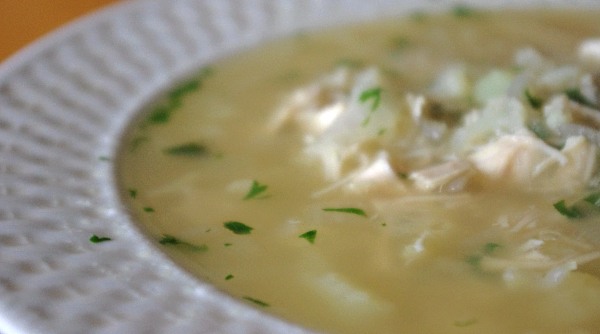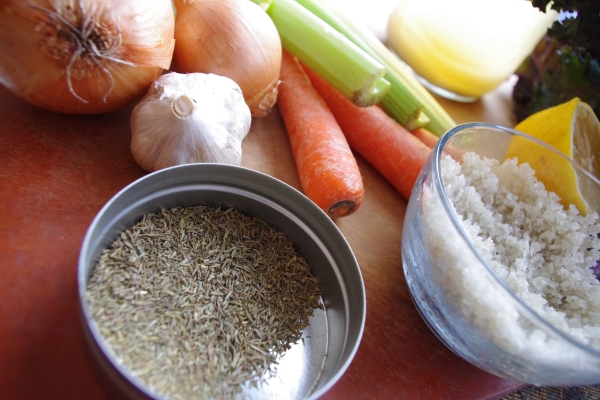The wood stove is crackling and the heat radiates all around us. Our faces burn so we lean back in our chairs and put our feet atop a craggy mesquite log to warm them. All around us is a smell in the air that can’t be ignored.
It smells of home and nourishment and the care it takes to make homemade soup. It smells of a great-grandmother’s kitchen and fresh onions from the garden and a rooster whose life we chose to end just hours earlier.
For in that pot atop that warm wood stove lies two roosters drowning in the water caught from a rainstorm atop our roof. Soon they will be combined with various other tasty elements to become more than the sum of their parts.
Soup, maybe even moreso than bread, has been the sustenance of every generation that has walked this earth. It takes two elements: a small piece of meat stuck next to a knobby piece of bone and water. These two elements combine to magically nourish many more people than that piece of meat alone would.
One thing I have heard over and over, however, is “I can’t seem to make good soup.” How can this be? I suppose it is a result of a couple of generations of Campbell’s junkies. And that, my friends, is not good soup if it is your reference point.
So how have generations survived on soup that is both nourishing and delicious?
Soup, at its most basic, starts with one crucial element: homemade stock. It can come from a chicken carcass, a stray beef bone from a Sunday roast, or a shank of ham leftover from the night’s supper.
Next comes aromatic vegetables such as onions, celery, and carrots in chicken soup or garlic and ginger in an Asian-inspired soup.
Then you need to decide if your soup is going to be a hearty stand-alone meal or if it is just the accompaniment to some other dish. If it stands alone you’re going to want something stodgy like potatoes, beans, meat, or squash along with a rich element like bacon, butter, cream, or coconut milk.
Once you’ve got the basics you’ll want to give it contrasting flavors. Woody herbs like rosemary, thyme, or oregano can be balanced by some fresh parsley or cilantro.
One of the most important elements that many people leave out is a final seasoning. Soup is based on water, generally, so ample salt is critical. And if, despite being salty enough, your soup seems to lie flat, add a splash of vinegar or lemon juice. Just a couple of teaspoons in a full pot of soup can really make a huge difference.
Finally, a pot of soup is meant to be shared and the absence of others will only be magnified by that large soup pot staring you in the face. Bring your family together, drop a quart of soup off with a neighbor, or invite stragglers in when they happen to be around at meal times.
A pot of soup, you know, can only be truly delicious when good conversation mingles with its taste and aroma.





